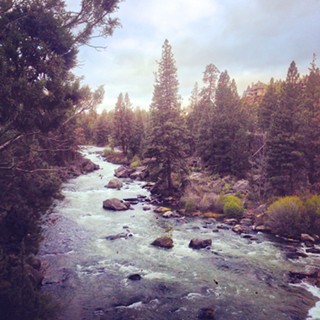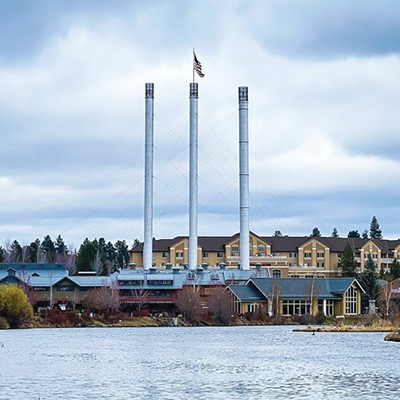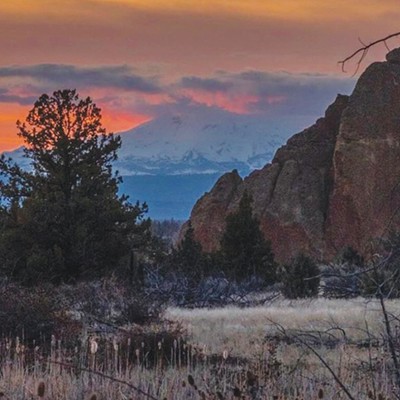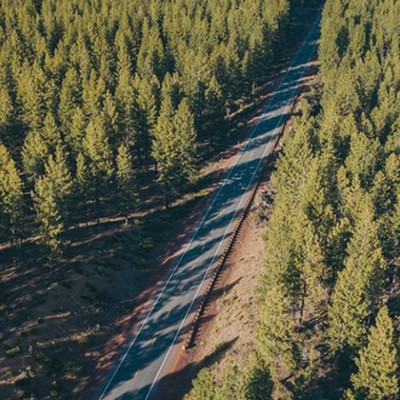IN REPLY TO: "ROBBING THE PRINCE TO PAY THE PAUPER" (5/13)
While I agree with the editors that it would be great to allocate funds from the Hotel Tax for other purposes, under state law 70 percent of hotel tax revenue must be applied towards tourist related advertising or infrastructure. Currently the remaining 30 percent goes towards the city's general fund. Why would we want to increase the TRT if there is a statutory requirement that the majority of funds go towards promoting tourism? Visit Bend is a big enough fiefdom already, thank you, and is in my view not the best use of local tax dollars. Although I'm sure the well-connected few that benefit from their patronage would feel otherwise.
—John Mundy
Raising the minimum wage is another thing that will help to make housing more affordable and improve our local economy. Tourists will continue to come to Bend even if the prices they pay go up. Over 80 percent of current [minimum wage] earners in Oregon are adults who need places to live. What tends to get lost in all these discussions is a fundamental definition of poverty, as eloquently expressed by Julianne Malveaux: "Poverty is when you just don't have no money."
—Michael Funke
IN REPLY TO "SMOKE SIGNALS: ANOTHER TYPE OF GREEN" (5/13)
It's unfortunate that there is so much hesitation to move forward with the changing laws regarding marijuana. Having to work with cash only is risky. I hope the federal laws work quickly to address the confusion that's still very present with the evolving marijuana industry.
—Tyrone
IN REPLY TO "LETTER: TIME FOR OUR FOREST SERVICE TO GO SMOKELESS!" (5/6)
Forest Service doesn't burn from spring to fall. They burn IN the spring and IN the fall. Amazing how uneducated the public still is. That is the fault of the [Forest Service] for sure. As for mechanically treating lands. Yes we do that as well. You cannot do this in the summer either because of the risk of starting wildfires. Don't like smoke? Ask someone from Sisters about smoke from wildfire and whine to them about smoke in Bend in the spring and fall, you most likely will get slapped.
—Skippy
Bend is smack dab in the center of an ecosystem that relies on a natural fire cycle to maintain and promote forest health. To go "smokeless" would be to interrupt a natural process that took nature thousands of years to perfect. The data gathered from tree rings reveals the average fire return interval for the ponderosa pine stands like you might find out Skyliners Road is historically 8-12 years, mimicking that with the use of prescribed fire is our best approach at maintaining forest health in a controlled and manageable manner. Focusing the attention around major roads and urban areas gives fire managers and firefighters the upper hand when preventing and suppressing large scales wildfires fueled by dense forest and heavy fuel loadings (which are a direct result of heavy fire suppression in the last century). When I say large-scale fires, I refer to the intense and severe ones which threaten life and property (i.e. Two Bulls fire). Smokey Bear is the worst thing to happen to fire dependent ecosystems in the inter mountain west, the educated fire managers know this already, but the general public is blinded by their own social and economic motives. A cultural shift needs to happen in the acceptance of the application of fire and the general public needs to come to terms with the fact that fire is here to stay and is the best tool in our tool box. All in all, people need to get the F over it. *mic drop*
—Just another guy
The dry forests of Central Oregon are flammable, and mechanical reduction of fuels is only a partial surrogate for the good work that fire does, a temporary abatement of wildfire at best. Where equipment cannot be used for a variety of reasons, including steep terrain and the maintenance of other resource values, such mechanical reductions of fuels are not possible and fire is the only tool available. Thinning, mastication, and removal of fuels can cost over $1,000/acre, often requiring additional mechanical treatment in the absence of fire, whereas application of prescribed fire in dry forests east of the Cascades can cost as little as $80/acre, and frequently produces more lasting fuels reduction than mechanical treatment alone. It is neither possible nor economically feasible to mechanically treat the entirety of the forest in place of using fire.
Challenges in managing smoke are among the primary causes of an overall lag in prescribed fire application following mechanical treatments. All federal, state, private, and non-profit organizations using fire for natural resources management must comply with the Clean Air Act, National Ambient Air Quality Standards, and administrative rules established and enforced through the Oregon Smoke Management Plan by the Oregon Department of Forestry and Department of Environmental Quality. The Forest Service would be burning more acres in the spring and fall were it not for these regulations. Fires like Two Bulls, that could be prevented through mechanical fuels treatments and prescribed fire, not only pose serious threats to public safety, but create smoke affecting ambient air quality conditions orders of magnitude greater than anything produced by prescribed fire.
Before Central Oregon was a "Playground of the Northwest," it was a fire-adapted ecosystem where humans and fire coexisted. It would behoove us all to promote prescribed fire as a means of restoring and preserving that playground, rather than perpetuating the misguided fire exclusion practices that have not worked in the past, and are even less likely to work in the future as fuels continue to accumulate, and a warming and drying climate continues to produce more intense and extensive wildfires.
As for views through haze, I have never seen a more beautiful sunset over the Cascades than after a prescribed burn.
—Amanda Stamper
IN REPLY TO "LETTERS: LOUD BIKES SUCK" (5/13)
Loud Bikes Risk Rights too!
"Since its inception in 1924, the American Motorcyclist Association (AMA) has maintained a position of strong opposition to excessive motorcycle sound. The AMA has funded information and public relations campaigns in support of quieter motorcycle use, and was the world's first motorsports sanctioning body to regulate and reduce the sound level of racing vehicles.
The AMA believes that few other factors contribute more to misunderstanding and prejudice against the motorcycling community than excessively loud motorcycles. All motorcycles are manufactured to meet federally mandated sound control standards. Unfortunately, a small number of riders who install unmuffled aftermarket exhaust systems perpetuate a public myth that all motorcycles are loud. Efforts by regulators to rein in excessive motorcycle sound often miss the mark by singling out motorcyclists with ordinances and laws that are unfair, impractical and unenforceable."
—RJ
























